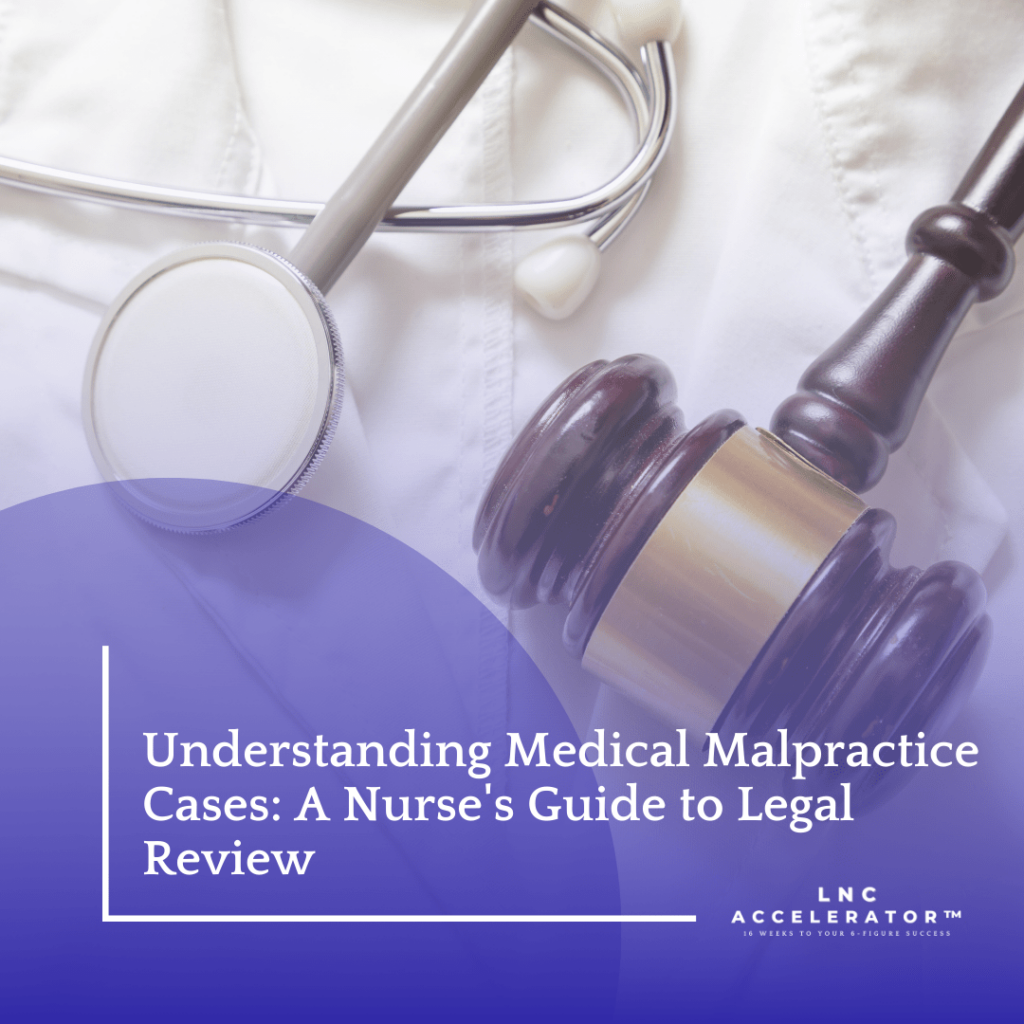
Understanding Medical Malpractice Cases: A Nurse's Guide to Legal Review
Core Concepts
The world of medical malpractice review can seem daunting at first. Yet as a nurse, you already possess many of the crucial skills needed to analyze these complex cases. Let’s explore how your clinical expertise applies to medical malpractice review.
The Four Elements of Medical Malpractice
Understanding medical malpractice begins with recognizing its four essential elements. First, there must be a duty of care – a professional relationship between the healthcare provider and patient. Second, there must be a breach of the standard of care. Third, the breach must cause harm. Finally, there must be damages resulting from that harm.
As a nurse, you’re uniquely qualified to identify these elements. Your clinical experience helps you understand when care falls below acceptable standards and how such deviations can lead to patient harm.
Standard of Care Analysis
The standard of care represents what a reasonably competent healthcare provider would do under similar circumstances. Your nursing experience gives you firsthand knowledge of these standards. You understand the protocols, procedures, and best practices that guide patient care.
When reviewing cases, you’ll draw upon this knowledge to determine whether the care provided met established standards. This isn’t about perfect care – it’s about reasonable, appropriate care given the circumstances.
Causation: Connecting the Dots
Perhaps the most challenging aspect of medical malpractice review is establishing causation. Did the breach in standard of care directly cause the patient’s injury? Your clinical background helps you understand the complex relationship between actions and outcomes in healthcare.
Consider a medication error case. Your experience with medication administration helps you understand not just what went wrong, but how and why it went wrong. You can trace the sequence of events and identify critical points where proper interventions could have prevented harm.
Documentation Review Techniques
Medical record review requires both attention to detail and an understanding of clinical context. Start with the big picture – what brought the patient to seek care? Then examine the progression of care, looking for gaps, inconsistencies, or deviations from standard practice.
Pay particular attention to nursing notes. Your experience with documentation helps you spot when important information is missing or when entries don’t align with typical care patterns. Look for changes in patient condition and how the healthcare team responded to those changes.
Timeline Development
Creating accurate timelines is crucial in malpractice cases. As a nurse, you understand how events in healthcare settings unfold and how different aspects of care interact. Your experience helps you reconstruct the sequence of events and identify critical moments where care may have deviated from standards.
Communication Patterns
Healthcare communication often plays a crucial role in malpractice cases. Your understanding of typical communication patterns between healthcare providers helps you identify where breakdowns may have occurred. Look for evidence of proper hand-offs, response to concerns, and team coordination.
Expert Collaboration
In many cases, you’ll work alongside other healthcare experts. Your nursing background helps you communicate effectively with these experts, understanding their perspectives while maintaining focus on the nursing aspects of care.
Professional Analysis
Common Areas of Focus
Medical malpractice cases often center around specific areas:
Wrong site surgery involves understanding proper verification protocols. You know the importance of multiple checks and clear communication. Delay in diagnosis cases require analyzing assessment patterns and response to symptoms. Medication errors involve examining the entire medication administration process.
These areas align well with your nursing experience, where you’ve likely encountered similar situations from a clinical perspective.
Writing Clear Reports
Your analysis must be presented clearly and objectively. Focus on facts rather than opinions. Describe what the records show (or don’t show) and how this relates to standard practice. Your nursing background helps you explain medical concepts in terms attorneys and juries can understand.
Maintaining Objectivity
As a nurse, you’re used to documenting objectively. This skill is crucial in legal review. Focus on what the records actually show, not what you think should have happened. Avoid emotional language and stick to factual analysis.
Understanding Systems Issues
Many malpractice cases involve systemic problems rather than individual mistakes. Your experience in healthcare helps you understand how various factors – staffing, policies, communication systems – can contribute to adverse outcomes.
Looking Ahead
Medical malpractice review might seem complex, but your nursing background provides an excellent foundation. Each case offers an opportunity to apply your clinical knowledge in meaningful ways, helping ensure fair and accurate legal outcomes.
Remember, your role is to analyze and educate, helping legal professionals understand the medical aspects of their cases. Your nursing expertise makes you uniquely qualified for this important work.
Become a Legal Nurse Consultant
6 Figure Income Projection + Cases & Clients in 16 Weeks or Less...
(Or We’ll Work With You 1-On-1 For Free Until You Do)




